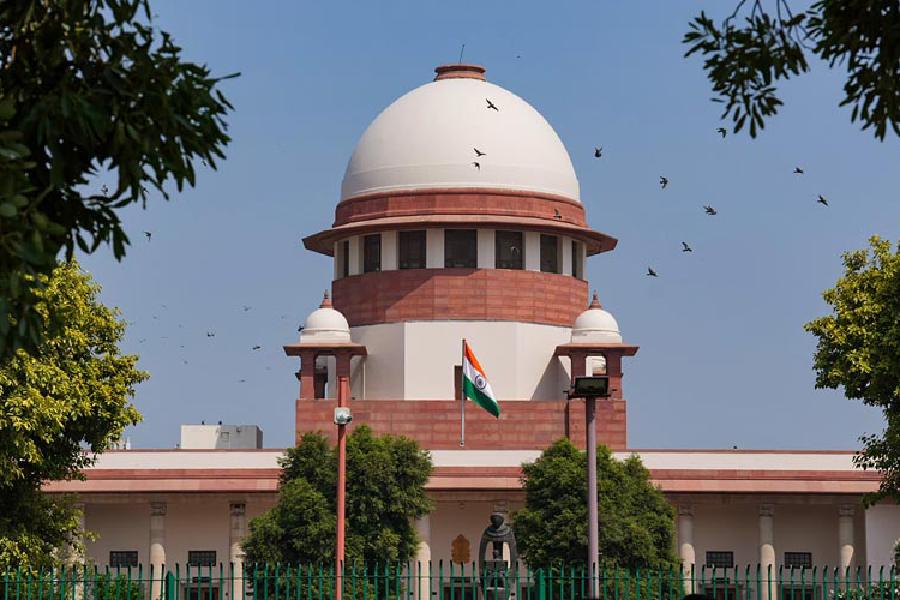The Supreme Court on Tuesday pulled up four Gujarat police personnel for publicly flogging five Muslim men on the charge of obstructing a garba event in Kheda district last year, but stayed the 14-day imprisonment handed down by Gujarat High Court to the cops.
“What kind of atrocities? Tying the people to poles and beating them in full
public view and then you expect this court to save you?” said the bench of Justice B.R. Gavai and Justice Sandeep Mehta, addressing senior advocate Sidharth Dave representing the cops.
The accused officers — A.V. Paramar, D.B. Kumavat, Laxmanisnh Kanaksinh Dabhi and Rajubhai Dabhi — had received a 14-day sentence on October 19 last year under the Contempt of Courts Act, 1971, following a petition from the victims. The victims had earlier moved the high court citing the apex court’s judgment in the D.K. Basu vs State of West Bengal case (1996) case in which directions had been passed to the police against any custodial violence or excesses against suspects or accused persons.
The accused officers appealed to the apex court, arguing that they were already facing criminal and departmental proceedings, making the contempt punishment unwarranted.
The bench rejected the argument, with Justice Gavai questioning the police’s authority: “So you (police) have an authority under law? To tie people to polls and beat them?”
The other judge, Justice Mehta, interjected to add: “… And take videos?”
The court alluded to reports suggesting the accused officers not only tied and beat the victims but also recorded videos of the incident.
Dave contended that the officers were unaware of the D.K. Basu judgment and argued against willful disobedience, to which Justice Gavai responded: “So ignorance of law is a valid defence.”
The apex court acknowledged the high court’s findings that the five Muslim men were illegally detained for over 24 hours before being publicly flogged.
Dave disputed the illegal detention claim, stating it was subject to trial and shouldn’t be considered under contempt jurisdiction.
Justice Gavai emphasised the duty of every police officer to be aware of the law laid down in D.K. Basu and admitted the statutory appeal by the accused officers.
“It is the duty of every police officer to know what is the law laid down in D.K. Basu. As students of law, we have been hearing about D.K. Basu,” Justice Gavai observed.
Senior advocate I.H. Syed, representing the victims, defended the high court’s punishment, asserting that contempt proceedings were independent of criminal and departmental actions.
The bench issued formal notices to the Gujarat government and the victims on the officers’ plea. Despite Dave urging the court to stay the high court’s imprisonment order, Justice Gavai remarked: “Enjoy the custody. You will be a guest of your own officers. They will provide you special treatment.”
Dave mentioned the high court’s three-month stay on the imprisonment order, enabling the appeal to the Apex court.











